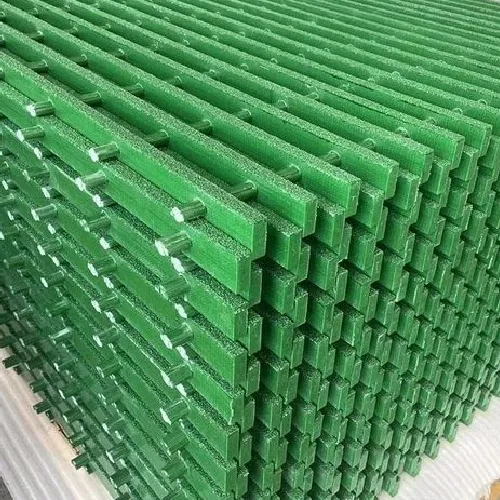loading...
- No. 9, Xingyuan South Street, Dongwaihuan Road, Zaoqiang County, Hengshui, Hebei, China
- admin@zjcomposites.com
- +86 15097380338
- Welcome to visit our website!
pressure vessel filter
Understanding Pressure Vessel Filters A Comprehensive Overview
Pressure vessels are crucial components in various industries, including chemical processing, oil and gas, and manufacturing. They are designed to hold gases or liquids at a pressure substantially different from the ambient pressure. To ensure the safe operation and longevity of these vessels, filters play a vital role. In this article, we will explore the significance of pressure vessel filters, their types, applications, and best practices for maintenance.
Importance of Pressure Vessel Filters
Filters in pressure vessels serve a pivotal function in maintaining the integrity and efficiency of the system. They help prevent contaminants from entering the vessel, which can lead to various issues, including
1. Corrosion Contaminants such as water, salts, and other particulates can lead to accelerated corrosion of the vessel, potentially resulting in leaks or failures.
2. Clogging If not filtered properly, particulate matter can clog valves and pipes, restricting flow and leading to reduced efficiency.
3. Chemical Reactions Impurities can react with the primary substances within the vessel, possibly resulting in undesired chemical reactions that could compromise product quality and safety.
4. Operational Downtime Regular maintenance, repair, or replacement due to contamination-related issues can result in significant operational downtime, impacting productivity and profitability.
Types of Filters Used in Pressure Vessels
There are various types of filters utilized in pressure vessels, each designed for specific applications and requirements. Some of the most common types include
1. Strainers These are simple mesh filters that capture larger particles suspended in fluids. They are often used in liquid applications where the flow rates are moderate to high.
2. Cartridge Filters Cartridge filters use a replaceable filter element to trap particulates. They are effective in both liquid and gas applications and are suitable for finer filtration needs.
3. Bag Filters Bag filters consist of filter bags that can capture a wide range of particles. They are often used in applications where large volumes of liquid need to be filtered.
4. Coalescing Filters These filters are specially designed to separate emulsified oils and water in the process fluids. They aggregate smaller droplets into larger ones for easier removal.
5. Activated Carbon Filters Frequently used in gas applications, these filters reduce odors and volatile organic compounds (VOCs). They are crucial in ensuring the purity of gas before it enters the pressure vessel.
pressure vessel filter

Applications of Pressure Vessel Filters
Pressure vessel filters find applications across various sectors, including
1. Chemical Processing In the chemical industry, efficient filtration is essential for preventing contamination, which could affect reaction outcomes and product safety.
2. Oil and Gas Pressure vessel filters are used to maintain the quality of crude oil and natural gas by removing impurities that could cause pipeline corrosion or equipment failure.
3. Water Treatment In water systems, filters help remove sediments, bacteria, and organic materials, ensuring safe and clean water for consumption.
4. Power Generation In power plants, filters are crucial for protecting equipment from contaminants in fuel or cooling water, ensuring efficient and safe operations.
Best Practices for Maintenance
To ensure the efficacy of pressure vessel filters, regular maintenance is essential. Here are some best practices
1. Regular Inspections Frequent checks can help identify signs of wear and blockages, preventing more significant issues down the line.
2. Scheduled Replacements Establish a routine for replacing filter elements as per manufacturer guidelines or based on operational conditions.
3. Monitoring Performance Keep track of pressure drops across filters; a significant increase may indicate clogging and a need for cleaning or replacement.
4. Operator Training Ensure that staff are adequately trained in the operation and maintenance of filters in pressure vessels, enhancing safety and efficiency.
Conclusion
In summary, pressure vessel filters are integral components that help maintain the performance and safety of pressure vessels across various industries. By understanding the different types of filters available, their applications, and the best maintenance practices, operators can significantly enhance the reliability and longevity of their pressure vessels. Investing in quality filtration solutions is not just about protecting equipment – it is a crucial step toward ensuring operational excellence and safety in industrial processes.
-
The Rise of FRP Profiles: Strong, Lightweight, and Built to LastNewsJul.14,2025
-
SMC Panel Tanks: A Modern Water Storage Solution for All EnvironmentsNewsJul.14,2025
-
GRP Grating: A Modern Solution for Safe and Durable Access SystemsNewsJul.14,2025
-
Galvanized Steel Water Tanks: Durable, Reliable, and Ready for UseNewsJul.14,2025
-
FRP Mini Mesh Grating: The Safer, Smarter Flooring SolutionNewsJul.14,2025
-
Exploring FRP Vessels: Durable Solutions for Modern Fluid HandlingNewsJul.14,2025
-
GRP Structures: The Future of Lightweight, High-Performance EngineeringNewsJun.20,2025
